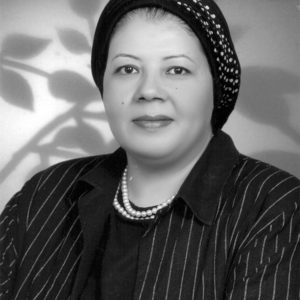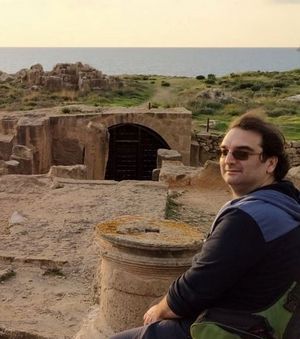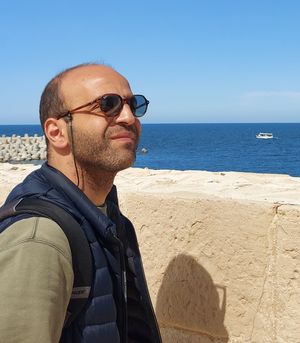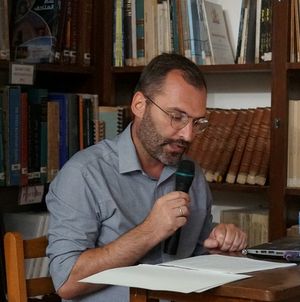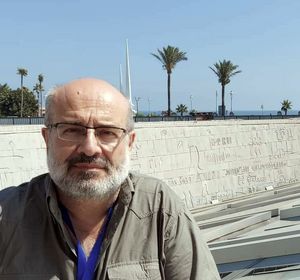Professor Emerita of Classical Archaeology in the Department of Classical Archaeology & Studies, Faculty of Arts, Alexandria University, Egypt. President of the Archaeological Society of Alexandria (Founded 1893). Elected Academician-Member of the Euro-Mediterranean Academy of Arts & Sciences.
2010 awarded the “Alexandria University award for scientific distinction”; 2016 Award of honour of the “Union of Arab Archaeologists”, Egypt; 2017 The “Hypatea Prize” from the Hellenic Association for women scientists, Athens, Greece; 2017 The “Egyptian state award of Excellency” in social sciences, Egypt.
Editor and co-editor of 4 international publications and managing editor of 2 specialized periodicals. Referee for 3 international periodicals. Author of 8 books, in Arabic, dealing with monuments and heritage of Egypt of the Ptolemaic & Roman times with special focus on Alexandrian tangible heritage, plus over 40 specialized articles published in international periodicals and conference proceedings.
Researcher of the Archaeological Society of Alexandria and Research Fellow at the University of Oxford.
His research interests lie in the history and archaeology of the Hellenistic and Roman Alexandria, focusing on issues of identity, ideology and cross-cultural interaction. From 2009 until 2013, he worked in Alexandria, Egypt, as a researcher (Alexandria and the Mediterranean Research Centre) and lecturer (Alexandria Center for Hellenistic Studies) at the Bibliotheca Alexandrina. He taught courses in history and archaeology of Alexandria and Egypt, while being author or editor of several publications, including a new series of catalogues for the Graeco-Roman Museum of Alexandria. He further worked as scientific advisor to two recently inaugurated Archaeological Museums in Alexandria and Cairo, and participated in excavations in the submerged coastline of Alexandria. From 2014 to 2021, he was working as researcher and co-editor on the Corpus of Ptolemaic Inscriptions from Egypt (CPI) project, based in the Centre for the Study of Ancient Documents (Oxford University), as well as Tutor of Classical and Hellenistic art in Queen’s College (Oxford University).
Professor of classical archaeology at the National and Kapodistrian University of Athens.
Born in Alexandria, Plantzos later moved to Greece where he studied history and archaeology at Athens; he also holds an MPhil and a DPhil in classical archaeology from Oxford, where he also spent three years as a British Academy Postdoctoral Fellow.
He is the author of various papers and books on Greek art and archaeology, archaeological theory and classical reception. His Greek-language textbook on Greek Art and Archaeology, first published in 2011 by Kapon Editions, was published in 2016 in English and is now available worldwide by American publishers Lockwood Press in Atlanta, Georgia. He was co-editor (with Dimitris Damaskos) of the volume A Singular Antiquity. Archaeology and Hellenic Identity in 20th century Greece (published in Athens in 2008) and (with Tyler Jo Smith) the Wiley-Blackwell Companion to Greek Art (published in 2012; paperback edition 2018). His more recent books are: Archaeologies of the Classical, an overview of archaeological method in the post-positivist era, published by Eikostos Protos in 2014; The Recent Future, a study of archaeological biopolitics in contemporary Greece, published in 2016 by Athenian publisher Nefeli; and his study The Art of Painting in Ancient Greece, published by Kapon Editions and Lockwood Press in 2018.
Before taking up his position at Athens in 2013, he worked as a curator at the Museum of Cycladic Art, and as an assistant Professor at the University of Ioannina.
Besides his involvement with Shatby, Plantzos is co-director (with Dimitris Damaskos) of the Argos Orestikon Excavation Project and an associate editor for the Journal of Greek Media and Culture.
Assistant professor of classical archaeology at the National and Kapodistrian University of Athens.
He received a thorough classical education at the University of Athens (2007), and further pursued postgraduate studies (2008) at the University of Nottingham where he obtained his PhD in Archaeology (2012), on prestigious studentships and awards. He specializes in the funerary archaeology of Classical to Roman Greece and examines the interplay of emotions, ritual and identity in the burial context.
His research interests also include childhood and gender archaeology, the archaeology of religion and ritual, and terracotta lamps. Nikolas has coordinated and participated in international meetings and in many archaeological projects in Attica, the Peloponnese, Thrace and the Dodecanese, while he is the director of the Halasarna excavation project in the island of Kos. Before joining the Department of History and Archaeology in 2020 he worked as post-doctoral fellow in various research projects of excellence, as adjunct faculty at the University of Athens and the University of Crete, and as a contract archaeologist at the Greek Ministry of Culture.
Research Assistant and PhD Candidate at the Cyprus Institute at the Science & Technology in Cultural Heritage Program. He received his BA from the Department of Theology of the Theological School of Aristotle University of Thessaloniki. He received a Master’s degree specializing in Religious Studies from the same department, and he also holds a Master’s degree in History of Hellenistic and Roman times from the Center for Hellenistic Studies of Bibliotheca Alexandrina. His main research interest focus on the areas of religion, history, and archaeology, especially of the Graeco-Roman and Early Christian eras in the Eastern Mediterranean.
As member of the APAC Labs of the Cyprus Institute, he is increasingly engaged in the effective application of technology in the research, analysis, and dissemination of archaeological material and sources.
